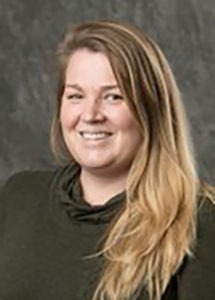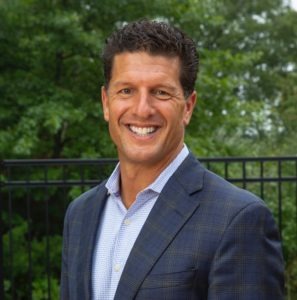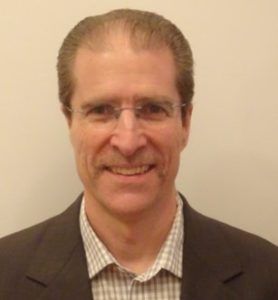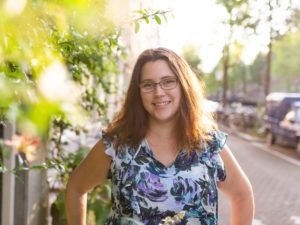Live Concerts Break Through Resident Isolation
| Live Concert Break Through Resident Isolation The author’s company brings residents and musicians together, up close and personal BY SUSAN E. MAZER |
| Musician Vince Guaraldi once said, “When I walk into a room, I make a noise so that I won’t feel alone.” For most of us, sounds may cut through the momentary loneliness imposed by silence, but isolation caused by age, illness, hearing and visual impairments, and other diminished capacities is not so easily rectified. Although described, documented, and acknowledged as a risk factor, involuntary solitude remains pandemic among the elderly. For the institutionally confined elder, the visits of the postman or delivery truck driver, seeing long-term neighborhood acquaintances, enjoying fellowship at church, and other activities that bring people together contribute to a quality of life that is no longer available. |
| Despite media rhetoric about addressing the aging population’s needs, long-term care residents and the facilities in which they reside are subjected to individual and collective isolation. The community at large, preoccupied by the busyness of living, marginalizes population segments that are unable to fend for themselves. A sense of community beyond that contained within the walls of a long-term care residence is important to improving the quality of life of the confined elder. Within the facilities themselves, individuals meeting for the first time under stressed circumstances live (and die) under one roof, eat in the same dining room night after night, and experience publicly their frailties, habits, and daily struggles. While residents may become united in the progression of the aging process, the inevitable changes are seldom positive. Residents stay until either they become acutely ill and transfer to another facility, or they die. In either case, progressive loss is ongoing and probably expected. Without a community presence relieving the isolation, the culture of illness and debilitation overtakes a culture of living. One of the many benefits of music is to bring people together and act as a socializing force-a way to change isolated individuals into a group of people whose commonality is created in the moment by a shared experience. Furthermore, the relationship between a musician and audience adds another component of social and personal enrichment. A musician coming into their “home” to perform is seen by residents as a sincere form of intention and attention. Research studies and anecdotal reports have verified the profound value of live performance, and studies in the fields of gerontology and music therapy have shown that, among other physiologic outcomes, appropriate music can alleviate depression, reduce agitation, increase cognition, and stimulate memory. Furthermore, the music also benefits family members who may be present, and the professional caregiver’s day-to-day work life is likewise enhanced. Integrating live music into the culture of long-term care also invites, if not creates, other rituals that optimize the experience. These may include snacks (before or after a performance), social activities designed around the event, an opportunity to dress for the occasion, programs to further introduce the event, and preparation on the part of both the musicians and the facility. Performers in Facilities The Elder Care Concert Series The initial seed funding from Healing HealthCare was $5,000, which drew matching funds from the Reno Arts and Culture Commission. The administrative costs of managing the series-$2,200-covered scheduling performances, contracting for facilities and musicians, collecting data, and attending each event to ensure quality. Fees for the musicians are $90 for a soloist or ensemble leader and $60 for each ensemble member. With an average cost of $50 per event for administration, the total expense for each event is approximately $140 to 270, based on the number of musicians performing and a local performance payment scale established by the musicians’ union. The first year’s series, which took a full six months to set up, provided 27 concerts to six facilities, with each event serving 15 to 30 residents. Recently funded for a second year, with continuing support from the Reno Arts and Culture Commission, the Elder Care Concert Series is presented at no charge to the facilities. As with any project, there are various people involved, all with different needs, responsibilities, and expectations. We believed that the best way to accelerate optimal benefits in this situation was to meet with both facility staff and musician-volunteers to orient both to the program. Orienting Musicians Invitations were sent to known artists who had already qualified by past experience and others who had been recommended by the musician community. The orientation meetings were scheduled in the late afternoon to avoid any conflict with evening performances or, for music teachers, school hours. These one-hour discussion-meetings focused on the series’ objectives, the importance of their performances to each resident, and the various challenges that are common to this setting. Guidelines were offered relating to such matters as being on time, keeping the sound level moderate rather than loud, not taking residents’ sleeping or wandering away as personal criticism, mixing old and new (but all recognizable) repertoires, and paying attention to staff requests and directions. During these orientations, musicians shared experiences from past performances that they had found very gratifying, and others that had not been. For example, some musicians had been left alone to perform for a small group of residents; in some cases residents had exhibited uncontrolled behavior reflecting their level of acuity, but the musicians had been unprepared to respond. The orientations helped to better prepare them. Earlier the topic of musicians’ fees was mentioned as one of the costs of these events. Although many musicians are willing to volunteer their time, providing them with compensation, however nominal, creates an authentic relationship between the facility and artist and acknowledges the professional value of the services provided. This does not diminish the generosity expressed by the musician-the fees paid in these situations seldom equal other professional engagement fees, and do not compensate fully for the benefits rendered to residents, families, and caregivers. Orienting Staff Evaluations Facilities also expressed appreciation for the roster of musicians, who, while diverse, were all of the highest quality, and for the Sierra Arts Foundation, whose role in administering the series was invaluable. Without its administrative support, the Elder Care Concert Series could have easily become just one more burden for the activities therapists or facility directors to manage. Aging-Related Issues One anecdote illustrates this. In the first of the 27 performances conducted during the first year of the concert series, Irish folk singer Tommy Sands performed at an Alterra residence center. Patients at this facility had a wide span of acuity. One was brought in a wheelchair, his head drooping in a semisleeping state. He had not come out of his room for days, although he had asked to attend. When Tommy asked if there were any requests, this gentleman barely lifted his head but, in an almost full voice, requested “When Irish Eyes Are Smiling.” Almost everyone joined in the singing, even those who, under other circumstances, may not have been able to participate in other social activities. Presenting concerts in nursing homes or hospitals is not a new idea. However, an eldercare concert series, whose specific intention is to enrich the facility’s culture and enhance residents’ quality of life, has far more comprehensive impact than a one-time or occasional event. Moreover, the quality of life within any community at large is measured by its consideration of the full chronology of life-from birth through death, for infants, children, adults, and elders. The Healing HealthCare Systems’ Elder Care Concert Series is but one example of a community caring for its own. Expressing collective respect for life in all its stages enriches life for all generations in the community. NH |
| Susan E. Mazer is president of Healing HealthCare Systems, a Reno, Nevada, company whose mission is to develop media products and educational programs to assist healthcare organizations in providing clinical environments that are directly supportive of recovery. She can be reached at (775) 827-0300 or info@healinghealth.com. For Elder Care Concert Series Guidelines for Musicians, see www.healinghealth.com/concert_series_musician.html; for Guidelines for Facility Directors, visit www.healinghealth.com/concert_series_director.html. For additional information on music and the elderly, visit the American Music Therapy Association Web site at www.musictherapy.org. To comment on this article, please send e-mail to mazer0903@nursinghomesmagazine.com. |
I Advance Senior Care is the industry-leading source for practical, in-depth, business-building, and resident care information for owners, executives, administrators, and directors of nursing at assisted living communities, skilled nursing facilities, post-acute facilities, and continuing care retirement communities. The I Advance Senior Care editorial team and industry experts provide market analysis, strategic direction, policy commentary, clinical best-practices, business management, and technology breakthroughs.
I Advance Senior Care is part of the Institute for the Advancement of Senior Care and published by Plain-English Health Care.
Related Articles
Topics: Activities , Articles











